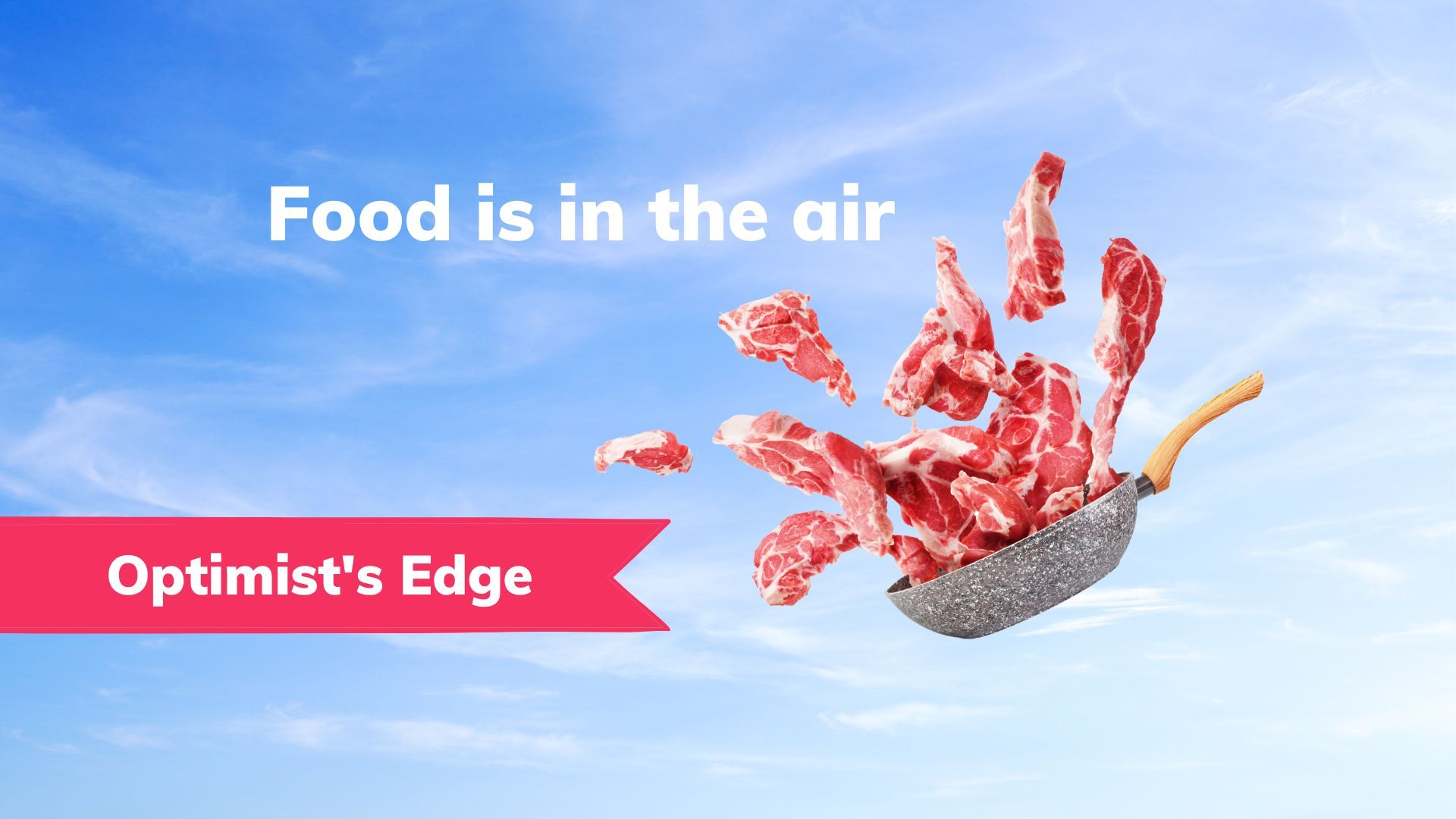🍔 Food Tech
A lot of innovation is going on in food tech, making food cheaper, more nutritious, better tasting and with less emissions during production. Here you'll find articles about AI, sensors and IoT, big data, digital biology, precision farming, cell-grown meat, GMO and automation.
💡 Optimist's Edge: Food from air
Your next-generation steak saves both cows and the planet. The main ingredient? Carbon dioxide.
🥓 Researchers have analyzed the environmental impact of 57,000 different foods
An analysis of 57,000 foods shows that it is possible to significantly reduce our environmental impact by choosing the right food in the store.
🍚 Super rice gives 40 percent greater harvests
By copying a single gene in a rice plant, it is possible to increase yields and significantly reduce the need for artificial fertilizers.
🐟 Simple improvement gives much more food from all caught fish
By sorting the different parts of the fish in a better way and immersing the parts that quickly go rancid in a special solution, it is possible to get more out of caught fish than we currently do.
💡 Optimist's Edge: Milk without cows
A factory in Denmark can replace nine percent of Danish cows. Milk and other dairy products can be produced in bioreactors by precision in the fermentation process. Foodtech companies all over the world are now working hard to create a future where cows become redundant.
🥦 Huge benefits from growing broccoli shaded by solar panels
Solar panels take up a lot of space and farmers usually want to grow crops on the surface where solar panels would work best. Now, scientists have found that a certain vegetable thrives in the shade from the panels. This vegetable is broccoli.
🌱 Artificial photosynthesis - grow food without sunlight
Researchers have developed a method for growing crops without sunlight, through artificial photosynthesis. In some cases, efficiency increased by 18 times, and the method is expected to revolutionize the management of climate change as well as space exploration.
🥬 Ocean vegetables could help tackle the global food crisis
A farm in Scotland is using sea water from the Atlantic Ocean to grow its vegetables. The project is led by Glasgow based startup Seawater Solutions and they have figured out a way to replace freshwater with saltwater to grow food.
🌒 Researchers successfully grow crops in lunar soil
Researchers at the University of Florida have conducted research that could lead to simplified logistics to lunar colonies and potentially agriculture in harsher regions of the earth.








